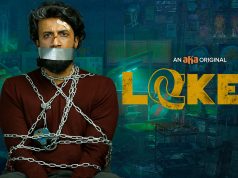Psychological studies have suggested that the psychology behind horror is rooted in different traits. People with a higher sensation-seeking trait are more likely to seek out horror experiences. Conversely, those with lower sensation-seeking tendencies may find horror experiences unpleasant. A higher openness to experiences also predicts the likelihood of liking horror.
Fear
You’re not alone if you’ve ever wondered why we love horror films. There’s a science behind why we enjoy watching scary movies, and it involves hormones. The best horror films elicit a response in the body known as the fight-or-flight response, which causes the release of adrenaline. This hormone increases heart rate, breathing, and sweating, among other physiological effects. In addition, adrenaline increases the release of endorphins, our bodies natural painkillers.
These hormones are produced by the autonomic nervous system, which controls the fight-or-flight response. They trigger a rush of oxygen and endorphins into the brain. People sensitive to these effects are expected to find horror films more disturbing, but a horror movie can be a form of escapism for those seeking relief from everyday stressors.
Detachment
One theory says that the love of horror is connected to the absence of empathy. While the emotions of horror films are unpleasant, the lack of empathy makes us more likely to enjoy them. The second theory says that we love horror because we want to experience the horror ourselves. However, the reason we love horror is complicated and involves multiple factors.
For one thing, fear is an evolutionary adaptation. Our brains process perceptual threats in the amygdala, a subcortical structure. The amygdala is responsible for initiating the immediate fear response. For example, the cortex may recognize a curved object as a water hose, but the amygdala reacts to the danger and initiates the fear response.

Control
The psychology of horror is complicated, but we have some control over how we react to it. One important factor in our liking for horror is our sensitivity to stress. For some people, horror movies can be an outlet for their stress and anxiety. Others may find them to be a good bonding experience.
Psychologists have hypothesized that people who like horror films do so because they crave the sensation of fear. These thrill seekers will also likely enjoy other adrenaline-pumping activities, such as bungee jumping.
Shock
Horror movies are an enjoyable way to get a rush of adrenaline. The thrill comes from the physical and emotional release of confronting a scary situation. This is a result of our adrenaline-seeking personality. However, this does not mean that we like the horror genre. There are several other reasons we enjoy horror.
One reason is the psychological impact. Research has shown that horror fans have better-coping skills than non-horror fans. For instance, when a zombie pandemic hits the United States, people who watch scary movies are more likely to be able to resist the infection than those who do not. The study was published in the journal Personality and Individual Differences.
Gore
Horror films have been a staple of cinema for decades. Starting with the early talkies and German Expressionist films like Nosferatu, horror films have a long history of terrifying scenes. According to Malcolm Turvey, director of the Film and Media Studies program at the University of Washington, horror movies are based on our psychological response to horror.
The experience of watching horror movies gives people an adrenaline rush. It’s the same rush we get from a real-life jolt of fear. And the high adrenaline levels make us feel good afterward. In addition, studies show that watching horror movies can bond teens with each other.











